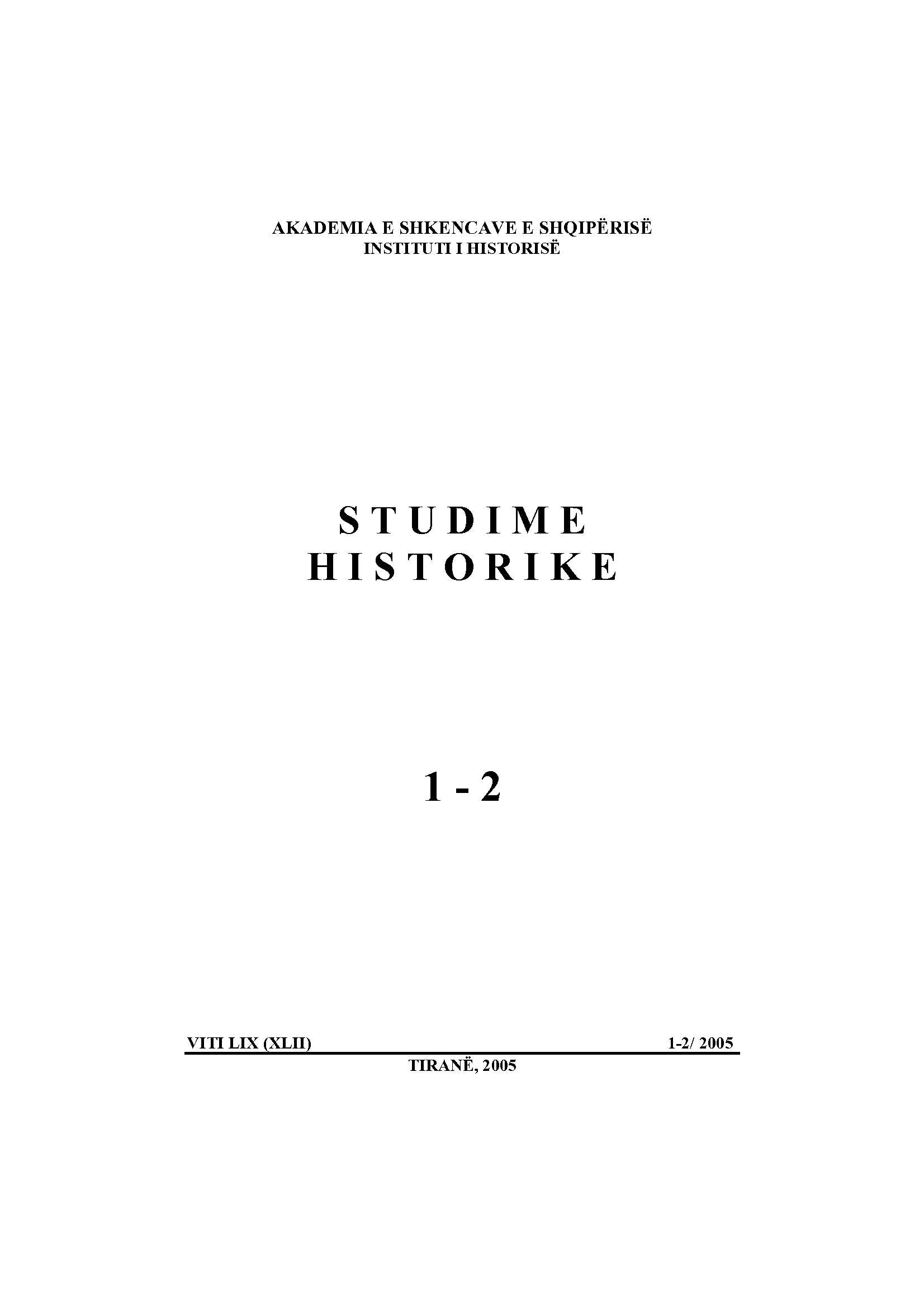Aleksandri i Madh në kujtesën historike të Skënderbeut e të shqiptarëve
Alexander the Great in the Historical Memory of Scanderbeg and of the Albanians
Author(s): Kasem BiçokuSubject(s): History
Published by: Qendra e Studimeve Albanologjike
Keywords: the historical memory of the Albanians; George Castriota Scanderbeg; kanune; canon; the Statutes of Shkoder; Albania; Albanian History;
Summary/Abstract: The Albanians together with the ancient language and culture have preserved even the memory for the major figures of the past. From the antiquity have remained indelible in the historical memory of the Albanians the two major personalities of that period, Alexander the Great and Pyrrhus of Epirus. Alexander the Great has been commemorated always with a particular adoration by the Albanians who are the direct inheritors of the non-Greek autochthonous inhabitants of the part of the Illyrian Peninsula which extends in the south of the Danube river (qualified as “barbarian” by the ancient Greek authors), to whom belonged even the inhabitants of the old Macedonia and its history. In the Albanian popular tradition and in the historical heritage he is mentioned mainly as the king Leka the Great. [...] The earliest written testimony for the commemoration of Alexander the Great by the Albanians belongs to the first half of the XIV-th century. It is found in the monumental vokume “The Shkodra Statutes of the First Half of the XIV-th Century”, which in the Ottoman times were called kanune (canon, unwritten customary law), are connected by the Shkodrans with the name of Alexander the Great. Our National Hero George Castriota Scanderbeg has adored Alexander the Great. He has held as a second personal name the name of Alexander the Great who among the Ottomans has had the corresponding Iskander (Skënder in the Albanian language).[...] The name of Leka in connection with the customary law and with the legends has a very wide spread in the Upper and Central Albania. This geographical spread is many times greater than the possessions of the noble family of the Dukagjin during the Middle Ages. The name comprises even the possessions of the much powerful aristocratic families and with a much greater role in our mediaeval history as the Dukagjini, as are the Castriots, Balshas, Thopias and Arianits. Even in the mediaeval anthroponomy the name Lekë is used very often by all the Albanians, everywhere they have lived, especially in the regions of Upper and Central Albania.[...] Shtjefën Gjeçov has left a very important testimony that the “Canon (Kanun) of Pirrit” has been the earliest denomination of the customary law used by the inhabitants of Lower Albania. This denomination is connected with the king Pyrrhus of Epirus. Whereas the denomination “The Canon of Leka” for the Albanian customary law has been an earlier denomination, very rooted and used in the Upper Albania, in the Central one and in wide regions of Lower Albania. The Statutes of Shkoder testify that, since the Middle Ages, the inhabitants of a very important Albanian town have connected their legislation for the organization of their activity with the name of Alexander the Great. The name Lekë in many toponyms, legends, and, above all, the name Lekë as denomination of the Albanian customary law is the deeper preservation in the historical memory of the Albanians for Alexander the Great.
Journal: Studime Historike
- Issue Year: 2005
- Issue No: 01-02
- Page Range: 007-029
- Page Count: 23
- Language: Albanian
- Content File-PDF

